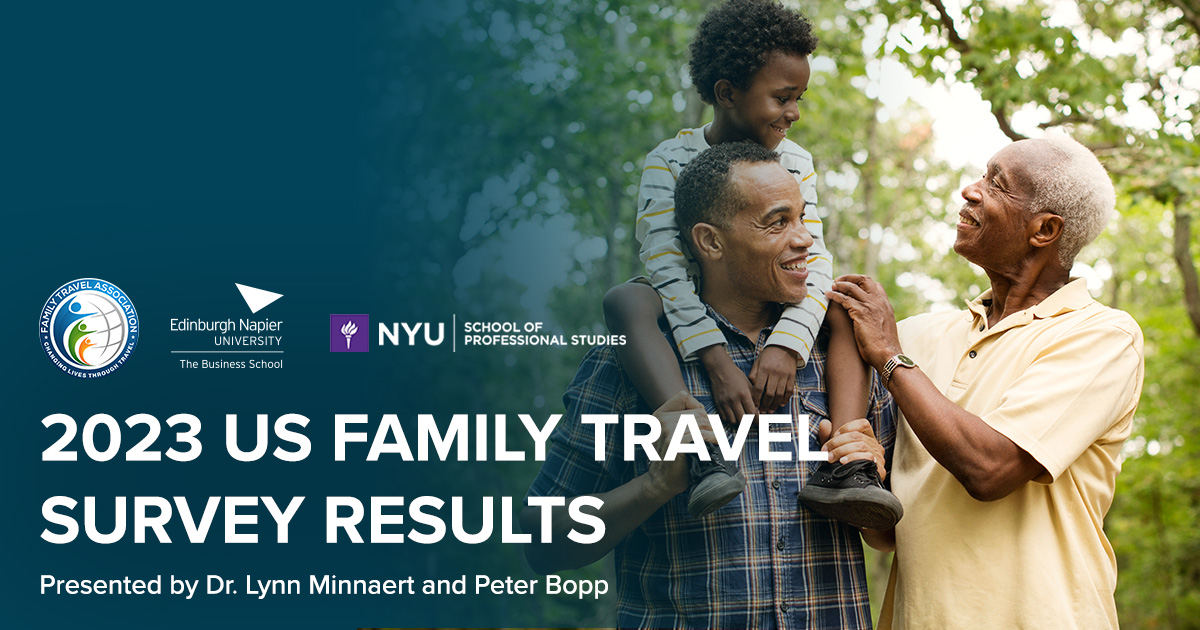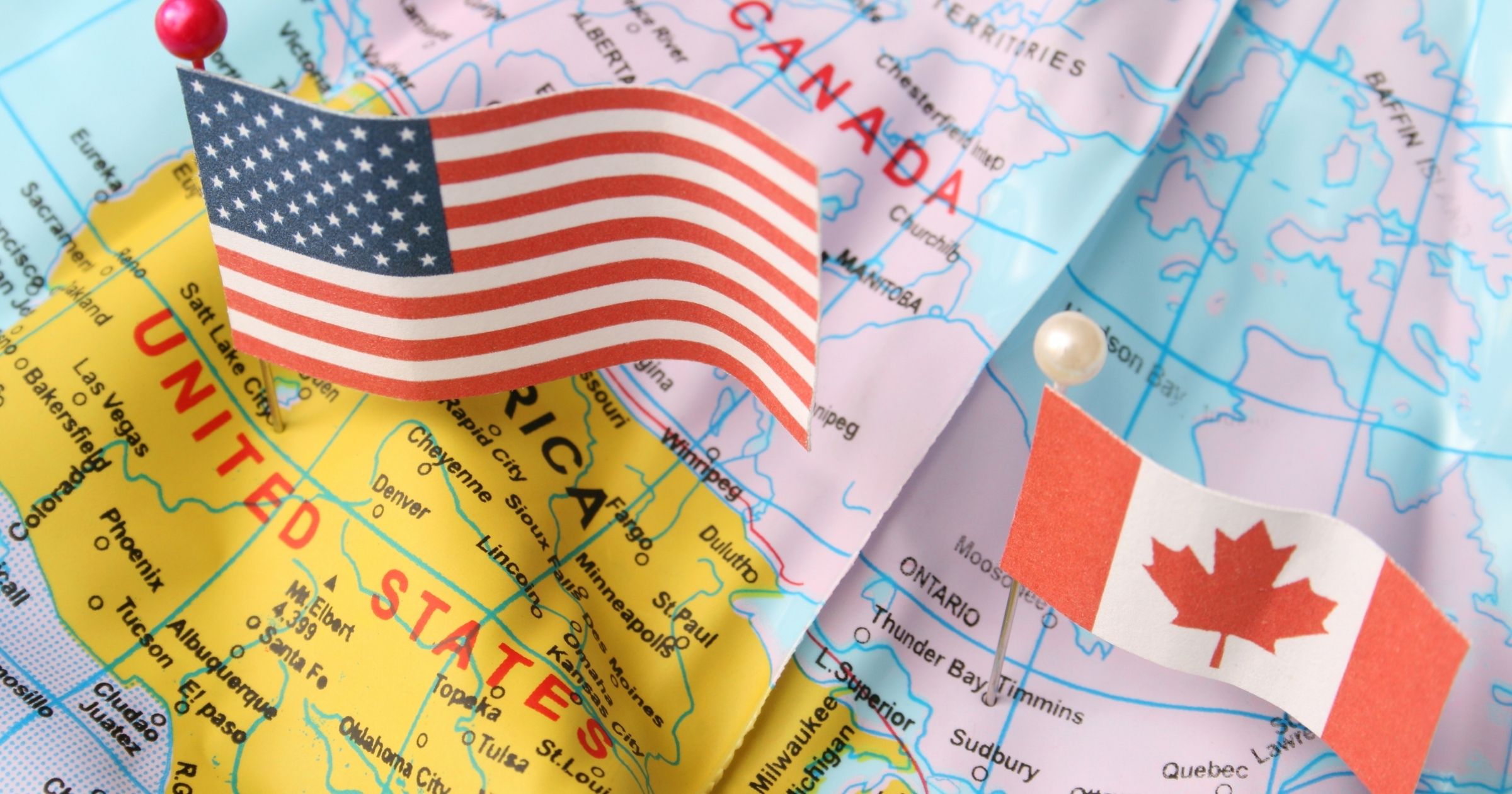
New FTA Survey Finds Increase in Use of Travel Advisors for Family Travel
The 2023 Family Travel Association (FTA) annual family travel survey highlights post-pandemic trends, positive attitudes and opportunities for growth.
The FTA has released findings from its 2023 U.S. Family Travel Survey on family travel trends. Produced in partnership with the NYU School of Professional Studies (NYU SPS) Jonathan M. Tisch Center of Hospitality and Edinburgh Napier University, the survey polled over 3,300 parents and grandparents about their travel plans, behaviors and attitudes, and summarizes a variety of travel trends in the industry.
The results show the family-travel market will continue the robust growth it has enjoyed since the end of the pandemic—81% of parents said they are likely to travel with their children in the next year, and many families are planning to increase (or at minimum, maintain) their level of travel spending. Despite these strong spending forecasts, affordability is said to be a challenge to family travel by 59% of parent respondents.
One trend that remains strong: Interest in travel advisors for trip planning—38% of parents have used a travel advisor to book at least one family trip in the past three years and 71% of parents indicate that they are willing to use a travel advisor in the coming years, which is an increase over 2022.
Large family groups are a big contributor to the market growth, with over 50% of parents saying they are planning to travel with grandparents and children. The top choice for "multi-generational" travel (grandparents, parents, and children) continues to be beach vacations. Whereas "skip-generational" travel (children and grandparents, without parents present) leans toward museums and cultural attractions.
According to Peter Bopp, Director of Research for the FTA, families are increasingly aware of the positive impacts of travel.
"This year we probed parents on their children's recovery from the pandemic and what role family travel plays in helping that recovery—88% of parents reported that family travel is helpful to their children in overcoming some of the lingering impacts of the pandemic," Bopp said. "In addition, 84% of parents reported that family travel helps make their children more adaptable and open to new experiences, 62% say that it gives them a more positive outlook on life, and 61% say it helps them with their social skills."
Lynn Minnaert, Professor and Head of Subject, Tourism and Languages, Edinburgh Napier University and co-author of the survey, also notes: "Our survey shows that parents plan to maintain or increase their spending on family travel in the coming year. However, despite this strong forecast, we see families are starting to express concerns about affordability and the rising cost of travel, and that they are starting to change their travel behaviors. For example, 50% of our respondents say they will avoid hotels and airlines that charge extra fees, 49% say they will pay closer attention to cancellation and refund policies, and 36% say they will choose more affordable accommodations than they did in the past."
In addition, each year, the U.S. Family Travel Survey asks respondents to rate the travel industry on how well it serves the needs of traveling families. This year, they gave the industry at B+ (better grade than last year) and noted several areas of friction they would like to see addressed:
- The challenge and added cost of being seated together on flights.
- The scarcity of family or connected rooms in hotels.
- The high cost of family travel, and the desire for lower-cost options and discounts.
- The need to improve the quality and level of service across the industry (with regular reference to the labor shortage across the sector).
- The dislike of hidden fees and charges that make pricing lack transparency.
"Being a parent of two young kids, it's empowering to see that family travel has positive impacts on the social-emotional development of children, while also helping to offset many negative lingering effects of the pandemic," said Anna Abelson, Adjunct Instructor at the NYU SPS Tisch Center of Hospitality. "Parents deal with many anxieties in children and young people, and family travel is a valuable parenting tool for tackling these and other issues. For example, the survey revealed that family travel makes children less isolated (58%), encourages them to be more adventurous with food (48%), and makes them more comfortable around strangers (44%). It's hard to overestimate the role of family travel."
The 2023 US Family Travel Survey represents responses from more than 3,000 parents and grandparents in the U.S. and was conducted in the Summer of 2023 by the FTA and the NYU School of Professional Studies Jonathan M. Tisch Center of Hospitality, in partnership with Edinburgh Napier University, and with support from Telecharge, The Shubert Organization, Trafalgar Tours/The Travel Corporation Family of Brands, and Club Med (prize partner). This is the eighth year for the annual survey, and this year's sample included a larger percentage of respondents in higher income brackets with more advanced educational backgrounds than in prior editions.
SURVEY HIGHLIGHTS:
- International family travel is making a strong comeback post-pandemic.
- Beach vacations (54%), visiting family and friends (49%) and visiting museums and cultural attractions (41%) are the three most common family travel types.
- The most common booking window (33%) for booking a family trip is two or three months before departure.
- Summer remains the most popular travel season, followed by spring break.
- When asked in which type of accommodations they planned to stay in the coming year, hotels were the most-selected answer (84%). Resorts come in second at 50%, and vacation rentals third at 47%.
- Domestically, the most popular states for family travel are California, Florida, Hawaii and New York.
- 71% of respondents indicate they are willing to use a travel advisor for their family travel needs in the next two years, an increase over 2022 (52%). These findings indicate that the position of travel advisors in the family travel space is strong.
- 80% of respondents agree that travel has helped their children see the world from a broader perspective, 67% agree that their children have become more interested in other cultures because of their travel experiences, and 62% that travel has helped their children to be more confident.
- 88% of parents feel that family travel is helpful to their children in overcoming some of the lingering impacts of the pandemic.
- 50% of parents say they will avoid hotels and airlines that charge extra fees.
- Over half of the grandparent respondents (54%) say they plan and organize their multi-generational travel experiences.
- Over three quarters of the grandparent respondents (79%) say they plan and organize their skip-generational travel experiences.
- Hotels are the most common lodging option (53%) for multi-generational travel, followed by vacation rentals (43%) and resorts (31%).
- 76% of respondents plan to travel internationally with their children in the next two years. Europe is the most popular continent for family vacations (with Italy, the U.K. and France topping the list), while Canada, Mexico and the Caribbean also remain popular.
For more information and to access a copy of the survey, download here or contact the Family Travel Association: info@familytravel.org.
Courtesy of Groups Today.



